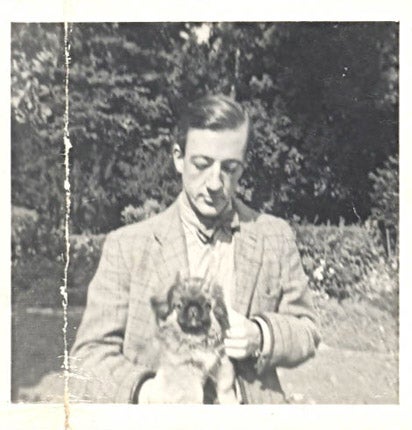Forgotten Author No 63: Rosalind Erskine

Your support helps us to tell the story
From reproductive rights to climate change to Big Tech, The Independent is on the ground when the story is developing. Whether it's investigating the financials of Elon Musk's pro-Trump PAC or producing our latest documentary, 'The A Word', which shines a light on the American women fighting for reproductive rights, we know how important it is to parse out the facts from the messaging.
At such a critical moment in US history, we need reporters on the ground. Your donation allows us to keep sending journalists to speak to both sides of the story.
The Independent is trusted by Americans across the entire political spectrum. And unlike many other quality news outlets, we choose not to lock Americans out of our reporting and analysis with paywalls. We believe quality journalism should be available to everyone, paid for by those who can afford it.
Your support makes all the difference.Sometimes I stumble across a strange old paperback, investigate the author and find something even more tantalising.
In 1962, Rosalind Erskine's novel The Passion Flower Hotel caused a sensation and became a bestseller. It tells the story of Bryant House, an exclusive private girls' school whose sixth-formers find themselves unable to meet boys or learn about sex. Over at Longcombe school for boys, the equivalent problem exists. The solution is still shocking: the girls set up a brothel in the school basement, with a menu of categories and prices.
At the time of the book's publication, it was virtually impossible for pupils in private schooling to mix sexes, unless you counted events such as the annual opera, when schools teamed up to provide the right gender balance. The St Trinian's films had already tackled the subject of schoolgirl sexuality, and Bryant House's Passion Flowers riotously smashed down the walls. The book spawned two inferior sequels, a terrible German-made film starring Nastassja Kinski, and a hit West End musical with a Bond-like score written by John Barry, who died last week.
The big selling point was that the author, 15-year-old Rosalind Erskine, was supposedly being educated at just such a school. Misinformation abounded about her – did she even exist? The answer is of course not. Rosalind was Roger Erskine Longrigg, the creative director of an advertising agency, who recognised that the time had come for a smartly written erotic comic novel. The book is a joyful and oddly innocent romp, but would probably have risked opprobrium had it been published under a male name.
Longrigg was a Scot from a military family who had also published two books about his experiences in the ad game, A High Pitched Buzz and Switchboard. Recently unearthed by Faber, they now feel like the British answer to Mad Men. He went on to write a further 55 novels under eight names, choosing a male or female persona appropriate to each. His prose is sparkling and epithetical, and his career stayed buoyant for decades. His wife was the novelist Jane Chichester.
Later, writing as Domini Taylor Longrigg, he produced the 1983 novel Mother Love, which was filmed for television with Diana Rigg and David McCullum. He also wrote about fox-hunting and horse racing, and proved pretty successful at any subject he turned to. But he'll be best remembered for the saucy Passion Flowers, even though the book is sadly now out of print.
Join our commenting forum
Join thought-provoking conversations, follow other Independent readers and see their replies
Comments